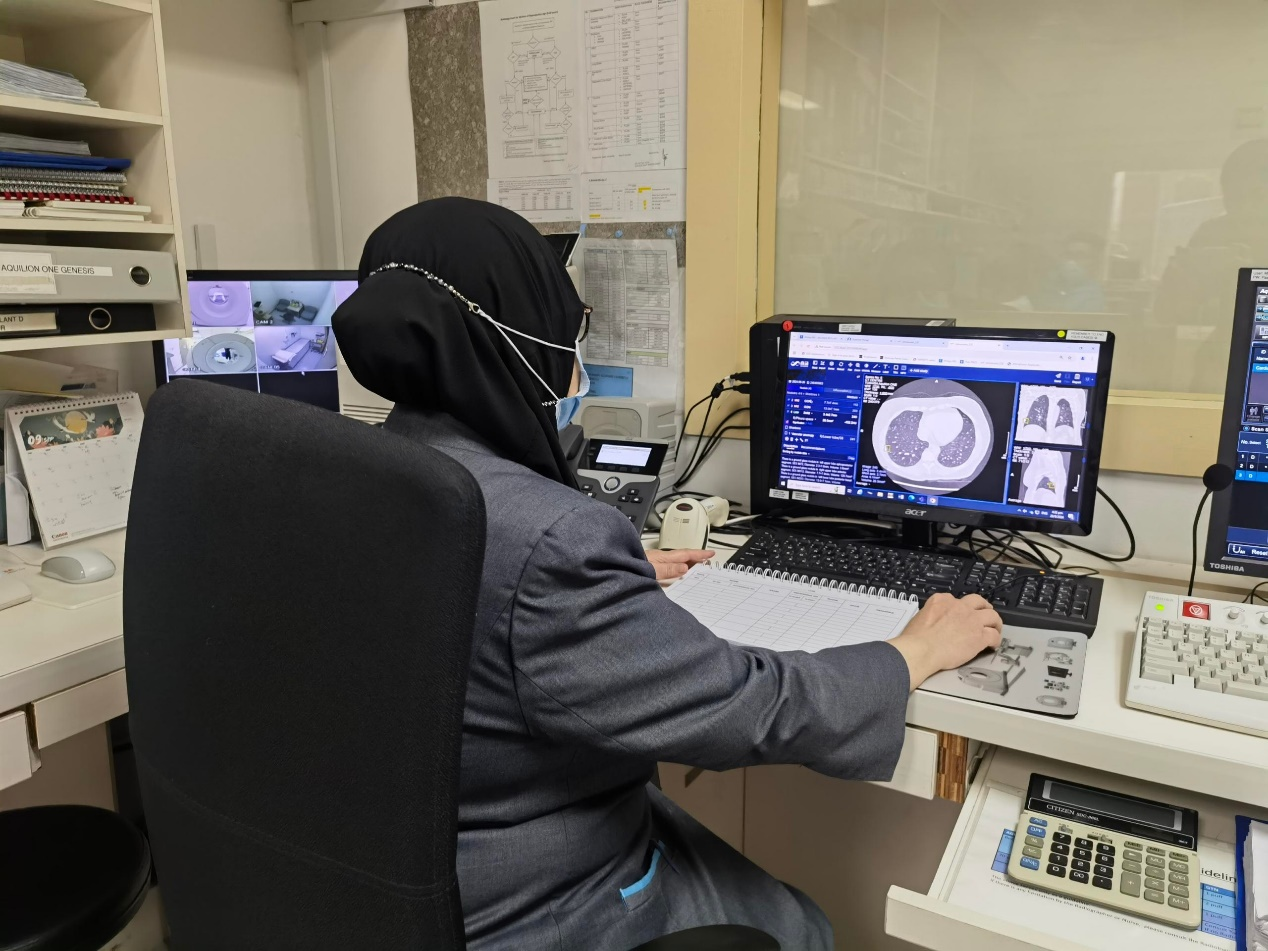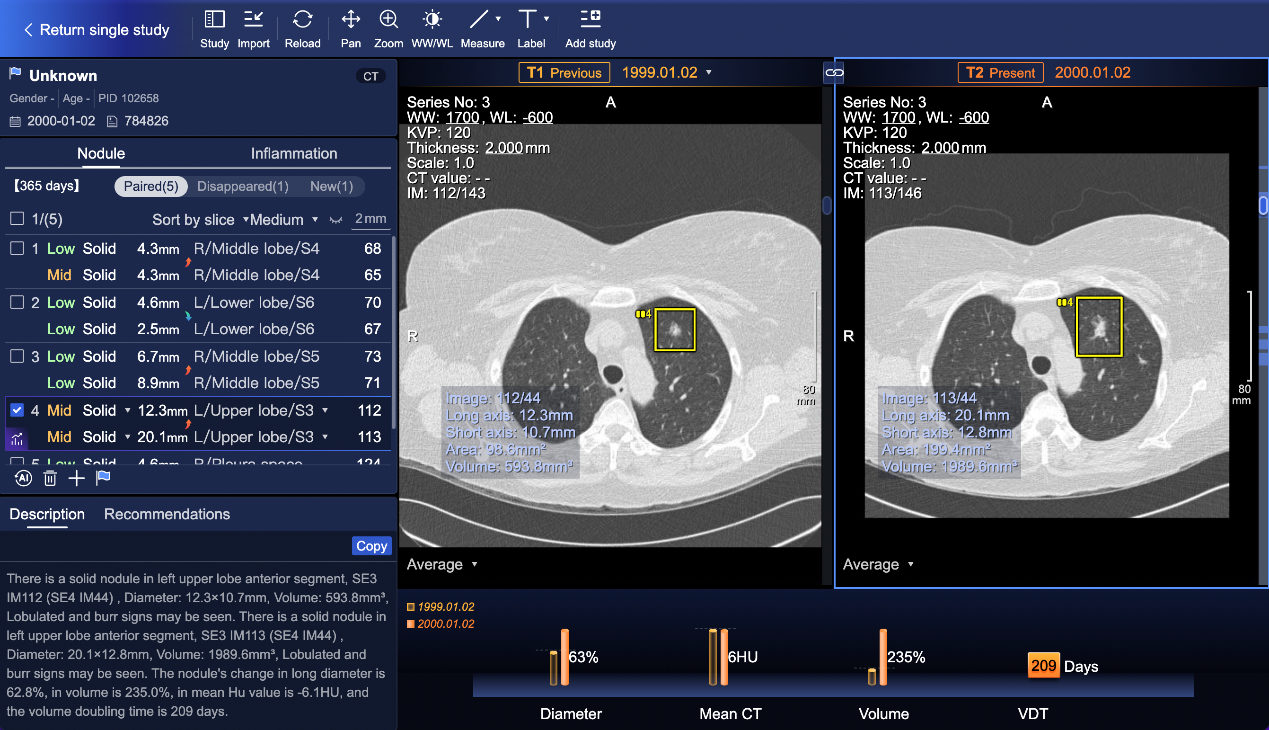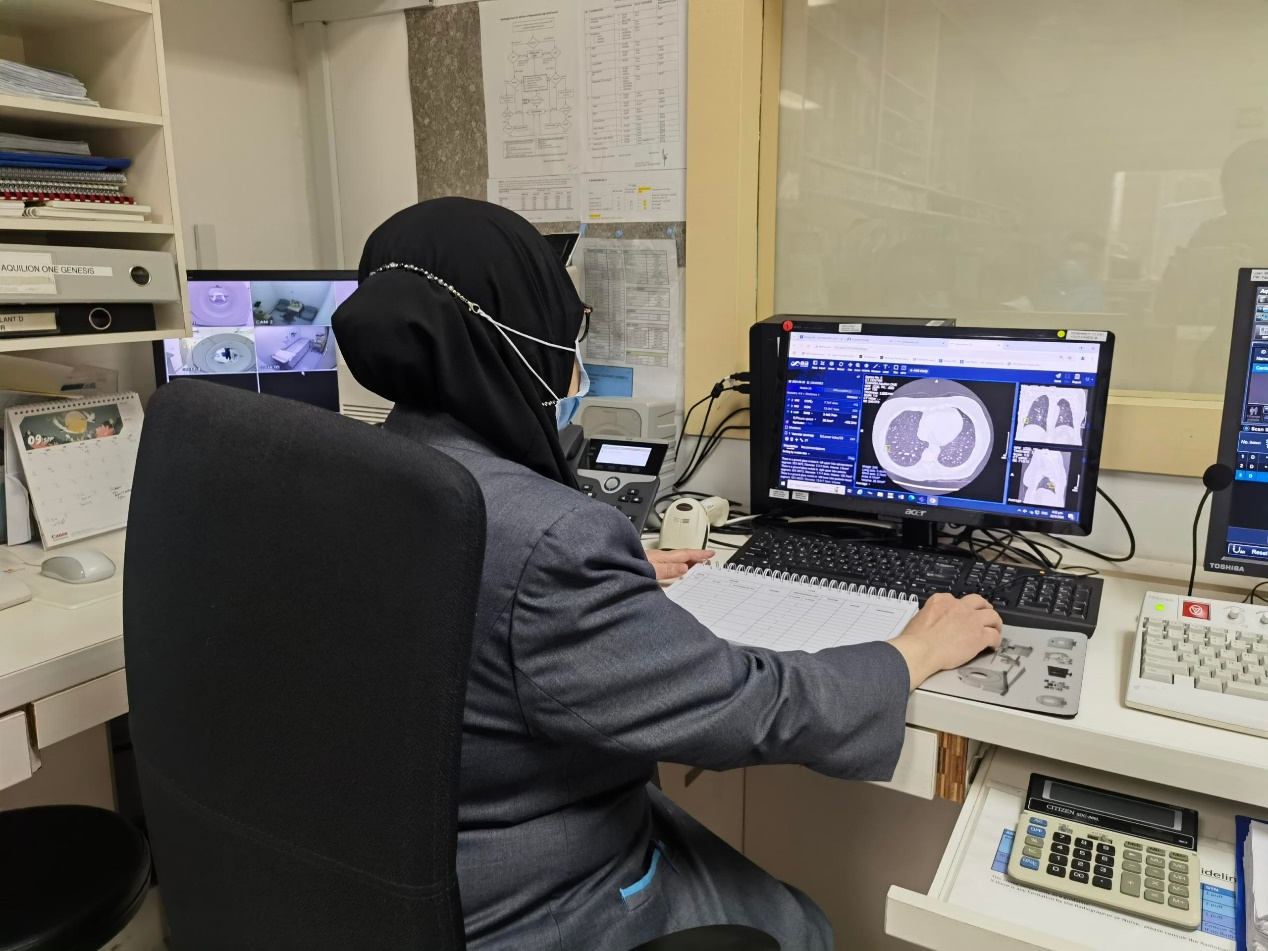
A doctor at Parkway Radiology uses the SenseCare® system. (Photo provided by SenseTime Technology)

Mount Elizabeth Novena Hospital under IHH Healthcare, Singapore (Photo provided by SenseTime Technology)
At Parkway Radiology, part of the high-end private healthcare group IHH Healthcare in Singapore, doctors used to manually review and compare patients' imaging results one by one, a time-consuming and laborious process. In 2024, after the SenseCare® Chest CT smart analysis and follow-up system (hereinafter "SenseCare® system") was deployed within the IHH Healthcare system, AI reduced the data processing time for a single imaging exam to within 2 to 3 minutes. It automatically completes image comparisons and indicator extraction across different time points. This has freed doctors from repetitive image comparison work, allowing them to focus more energy on the differential diagnosis of high-risk cases.
The SenseCare® system comes from SenseTime Medical, the healthcare brand under SenseTime Technology. This marks that Chinese medical AI technology has deeply entered the core clinical diagnosis and treatment processes in Southeast Asia, making it a representative project of Chinese medical AI technology in "going global."
AI-powered Healthcare Boosting Screening Efficiency
As AI technology integrates deeply into the healthcare sector, lung disease screening and management are undergoing a transformation from experience-driven to data-driven approaches. Early detection of lung cancer and scientific post-diagnosis management are crucial for improving patient survival rates. According to WHO statistics, lung cancer has been the leading cause of cancer deaths globally for 10 consecutive years, yet early screening can boost a patient's five-year survival rate to over 80%.
As early as 2022, SenseTime Medical received the first registration certificate for an AI-powered assistive chest CT diagnosis medical device from the Singapore Health Sciences Authority (HSA). This was among the first official compliance approvals granted by Singapore to Chinese medical AI enterprises, demonstrating the product's technological capabilities in safety, efficacy and clinical applicability. This certification also laid the groundwork for SenseTime Medical's collaboration with IHH Healthcare.
IHH Healthcare has stringent evaluation standards for the clinical integration and practical application value of new technologies. Through close local integration and rigorous clinical validation, the SenseCare® system was officially deployed and began operation within the IHH Healthcare system in 2024. The SenseCare® system, leveraging its leading algorithms and 3D post-processing technology, demonstrates significant application value in lesion identification and follow-up management. It achieves efficient screening by automatically detecting and locating millimeter-sized lung nodules, clearly marking their morphology and characteristics, and automatically indicating risk levels. This enhances detection rates and accuracy while reducing the risk of missed diagnoses for tiny lesions.
More importantly, it intelligently tracks the dynamic changes of the same nodule across images from different time periods. By automatically calculating key indicators such as the nodule's diameter, density and growth rate, it provides an objective decision-making basis for doctors to formulate subsequent review or intervention plans, powerfully supporting the smart, standardized and personalized development of lung nodule screening and follow-up work.
Optimizing Healthcare Workflows, Enhancing Patient Experience
Parkway Radiology processes thousands of lung nodule screenings each month. Traditionally, doctors had to manually review and compare patients' imaging results one by one, which was incredibly time-consuming.

The follow-up management module of the SenseCare® Chest CT smart analysis system (Photo provided by SenseTime Technology)
Currently, the SenseCare® system assists doctors with a large volume of chest CT examinations. Based on intelligent analysis, it provides precisely quantified indicators and results, significantly reducing the time doctors spend on manual image review. This frees doctors from repetitive image comparison, enabling them to dedicate more effort to the differential diagnosis of high-risk cases, thereby improving the accuracy and efficiency of complex case evaluations. Thanks to this system, operational workflows have been significantly streamlined, and imaging report generation efficiency has increased, allowing patients to receive evaluations and begin subsequent treatment much faster.
Testing Water Overseas, Exploring Replicable Models
SenseTime Medical's success in Singapore is considered a prime example of Chinese medical AI in "going global." This path involves obtaining a local authoritative compliance certification, completing clinical integration and validation, embedding the application into actual medical workflows, and accumulating local experience through practice.
Singapore, as a regional hub for medical technology in Southeast Asia, has a highly open healthcare system and stringent regulatory requirements, giving it significant demonstrative impact. Through this collaboration, SenseTime Medical has not only transitioned from product export to delivering integrated medical services, but also established a foundational model for future expansion into other countries.
The application prospects for AI in medical intelligent image analysis and follow-up management are vast. Chinese medical AI enterprises like SenseTime Medical are steadily building technological trust and industry influence in the global market, leveraging their algorithm capabilities, product maturity and local operational experience. SenseTime Medical will continue to deepen medical AI cooperation in Singapore and neighboring countries, providing efficient and reliable AI solutions for local healthcare systems and helping elevate public health management standards. (By Liu Chuntao)




 A single purchase
A single purchase









